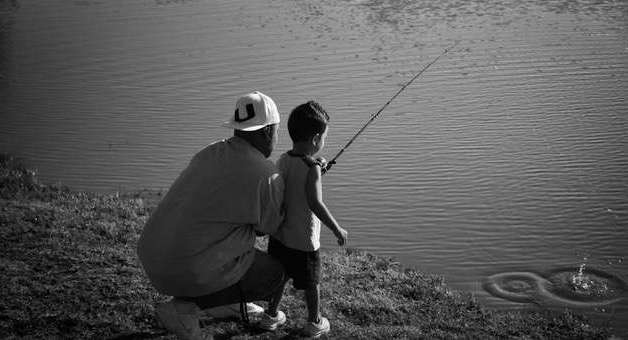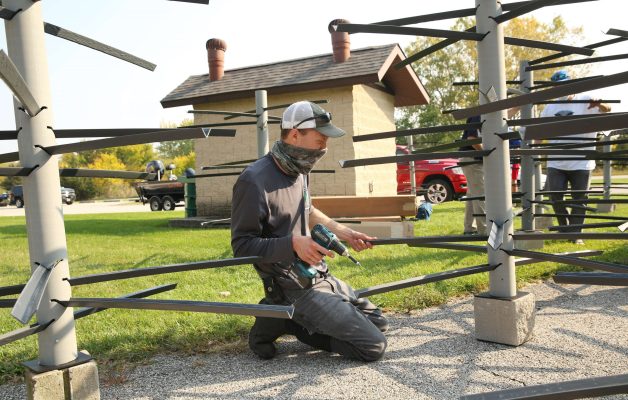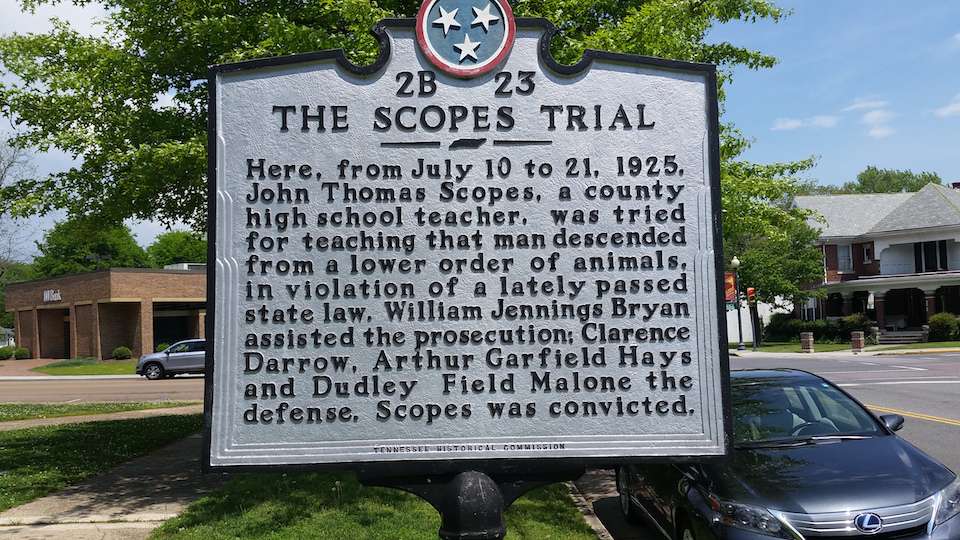
DAYTON, Tenn. – These are historic times for the tiny town of Dayton, Tennessee.
Nearly 400 anglers are crossing the stage for weigh-in during the Bass Pro Shops Southern Open No. 2 on Chickamauga Lake. Many of them are displaying hefty bass to a healthy crowd, and some of the bucket mouths are in the 8- and 9-pound range.
A week later, a record field of high school anglers will be in Dayton for the Costa Bassmaster High School Southern Open presented by DICK’S Sporting Goods. Those events traditionally reel in even bigger crowds, as mom, dad and siblings often travel with the teenaged anglers.
A news crew from CBS This Morning is working its way around the Dayton Boat Dock during the Southern Open. A reporter is talking with anglers, fans and Dayton Mayor Gary Louallen. They’re shooting hours of video tape to edit into a story about small towns across the U.S. that are using outdoors pursuits to jumpstart local economies.
And that leads the crew to Dennis Tumlin, who is the Rhea County Economic Development & Tourism Council Executive Director. Tumlin was born in the city of 7,000 and at 49 has seen its highs and lows. After a nearly two-decades long career with Coca Cola, Louallen lured him into civic work in his hometown. Together, they brainstormed ideas that would help revitalize Dayton’s economy, and fishing was a logical choice.
That’s because Dayton sits on Chickamauga Lake, a 38,000-acre impoundment of the Tennessee River, and the fishery has been one of the most productive in the U.S. in recent years. Bassmaster magazine ranked it the 6th best lake in the nation in 2013, and 7th in 2014. BASSfest was held here in 2014, and another pair of B.A.S.S. tournaments here this April are further testament to how good “The Chick” is fishing right now. There are more than 30 city-sponsored fishing tournaments scheduled for Lake Chickamauga in 2017, which is a significant increase from when Tumlin and Louallen joined forces three years ago.
People want a part of Lake Chickamauga, and the people of Dayton are happy to give it to them. For a place known chiefly as site of the Scopes Monkey Trials way back in 1925, fishing is a shot in the arm to the economy, and it’s the opportunity to rebrand itself as a haven to those with a 21st Century hobby – competitive fishing.
“We want to be a destination,” Tumlin said. “We partner with organizations like B.A.S.S. and that gives us credibility. The Elite Series came here for BASSfest and fans followed. The amateurs want to be here, and they’ll follow B.A.S.S. It’s a winning situation for us with tax dollars that come to town, but also for the people that come visit us, because the fishing is fantastic.”

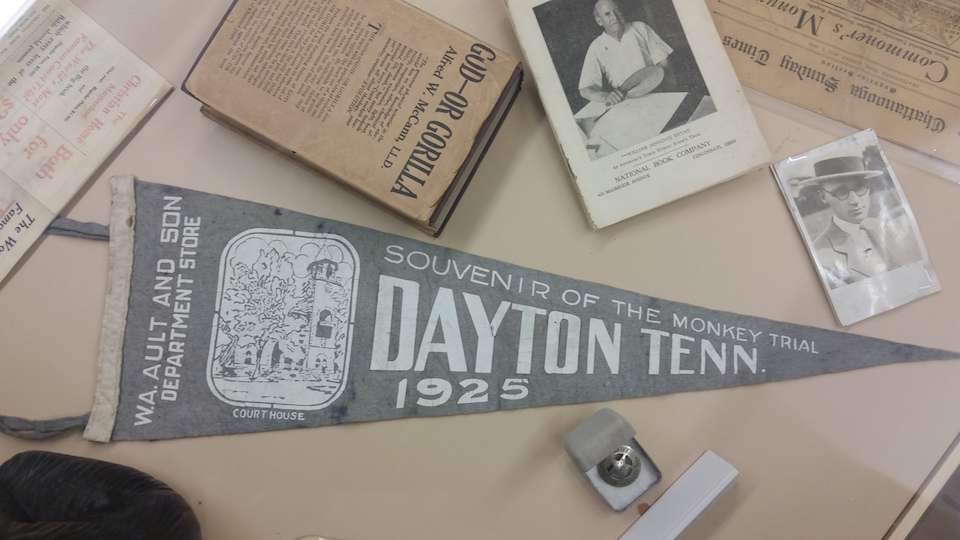
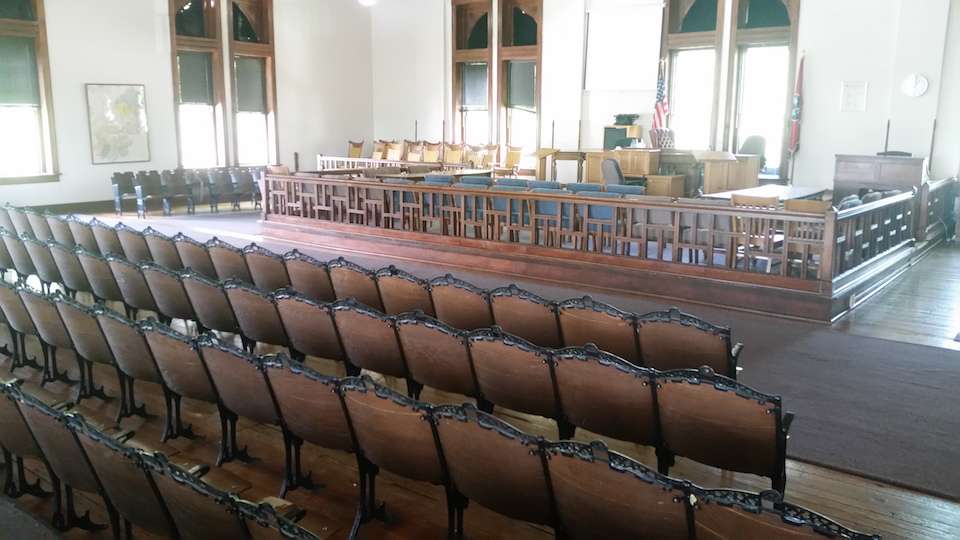
WELCOME TO MONKEY TOWN
A billboard stands on the northbound side of U.S. Highway 27 a mile or so outside of Dayton.
“Monkey Town Brewing Co., Dayton, Tennessee, Established 2014,” the sign reads.
It’s a clever name for a local business that has been part of the economic redirection in the city. But the “Monkey Town” handle is nearly a century old, and it has defined Dayton for as long as anyone here can remember.
In 1925, substitute teacher John Thomas Scopes was accused of violating Tennessee’s Butler Act which made it illegal to teach human evolution in the state’s schools. The trial was a publicity stunt to draw attention to what was then a hot-button topic – whether teaching modern science in schools superseded the Christian bible.
It also was a stunt hatched by a few Dayton citizens to attract publicity to the small Tennessee town. Scopes incriminated himself (though he wasn’t even sure he had taught evolution in the city schoolhouse) and the “Trial of the Century” was set. Two of America’s most famous lawyers (Clarence Darrow and former U.S. Secretary of State and presidential candidate William Jennings Bryan) argued the case in the Rhea Country Courthouse during a steamy fortnight in July. The temperature climbed so high inside, that the trial was moved outdoors.
Scopes eventually was found guilty, fined $100, though that verdict eventually was overturned.
The trial served its intended purpose, however, in that it drew international attention to Dayton. Hundreds of reporters descended upon the city, and the story was covered in newspapers around the world. Dozens of books were written about the trial, and the award winning movie Inherit the Wind was more than loosely based on the happenings that took place right here in the summer of 1925.
Fast forward 50 years and Dennis Tumlin is a schoolboy in Dayton. Lake Chickamauga, which was impounded in 1940, eventually fills with grass and is a fishing hotspot. But then the lake was sprayed with herbicide and most of the grass died. Bass fishing suffered, as well.
“People called it ‘Sickamauga Lake’ or ‘Slickamauga Lake,’” Tumlin said. “Roland Martin was talking about it the other day. He remembers being here in the 80s and it was 12 pounds that was winning tournaments back then.”
But approximately 20 years ago, the Tennessee Wildlife Resources Agency and the Tennessee Valley Authority began stocking Chickamauga Lake with Florida Strain bass. The introduced species responded far greater to its new environment than expected and had numerous successful spawns with native bass. The stocking continued as the years passed, and the lake’s natural grasses began growing again. Anglers who spent a lot of time on Chickamauga noticed the changes and reported the lake’s health was greatly improving.
Word spread as the catches from “The Chick” were becoming legendary. A state record bass of 15 pounds, 2 ounces was caught in the lake in 2015, and a stringer weighing more than 45 pounds added to the lore.
The times, they were a changing.
“We’re known for the Scopes Trial, but now it’s pretty cool to be known for something else,” Tumlin said.
A WAY OUT
Dayton is the seat of government in Rhea County, which is a federally-recognized Tier 4 Economically Distressed Zone. That places Rhea in the bottom 10 percent of counties in the U.S. in terms of per capita income, but it also means that Dayton and other county municipalities are eligible for federal grants to help revitalize economy in the area.
In Dayton, city leaders looked to its greatest natural resource as its economic engine. Now into the third year of an economic development plan to revitalize the city, Dayton is seeing the result of its labor. They branded the effort “Fish Dayton” and the marketing idea has taken hold.
The city used grant dollars to build the Dayton Boat Dock and Grill, which is part restaurant, part bait and tackle store and is located at lake’s edge in downtown Dayton. They paved the roads leading to the dock and the parking areas around it. They refurbished the docks and the backdowns, as well, which made the space much more accessible to local and visiting anglers.
Tumlin described the effort as “fast nickels, slow dimes,” meaning the town wanted to work with what obviously is a resource (Chickamauga), develop opportunity around that and wait for bigger developments to roll into town.
The formula is working, too. The town boasts 107 new jobs, two new hotels, five new restaurants and $15 million in revenue directly related to tourism since the Fish Dayton initiative began.
“Those 78 new hotel rooms and five new restaurants that have popped up, that’s $160,000 a year in property tax directly benefitting the city and county,” Tumlin said. “The critics calm down when they see brick and mortar showing up.”
But that’s not all. An industrial park is in the works in Dayton, as are other developments that Tumlin credits to bringing tourism dollars (read: fishing dollars) to town.
“We know what nothing gets you,” he said. “If we do nothing, we’re going to stay in the bottom 10 percent. If you’re a football team in the final 10 percent, you go get a new coach. We have a mayor who came in with a vision, and he recruited some folks who wanted a brighter and a better future. The lake and bass fishing; that’s low-hanging fruit.
“We have 10,000 registered competitors on Chickamauga per year now, and that’s not counting practice days,” he said. “And that’s only going to get better (as the business infrastructure grows). We’re setting a new precedent. That’s been our evolution.”
For more information on Fish Dayton and the Rhea County Economic Development & Tourism Council, go online to www.fishdayton.com or www.rheaecd.com.



